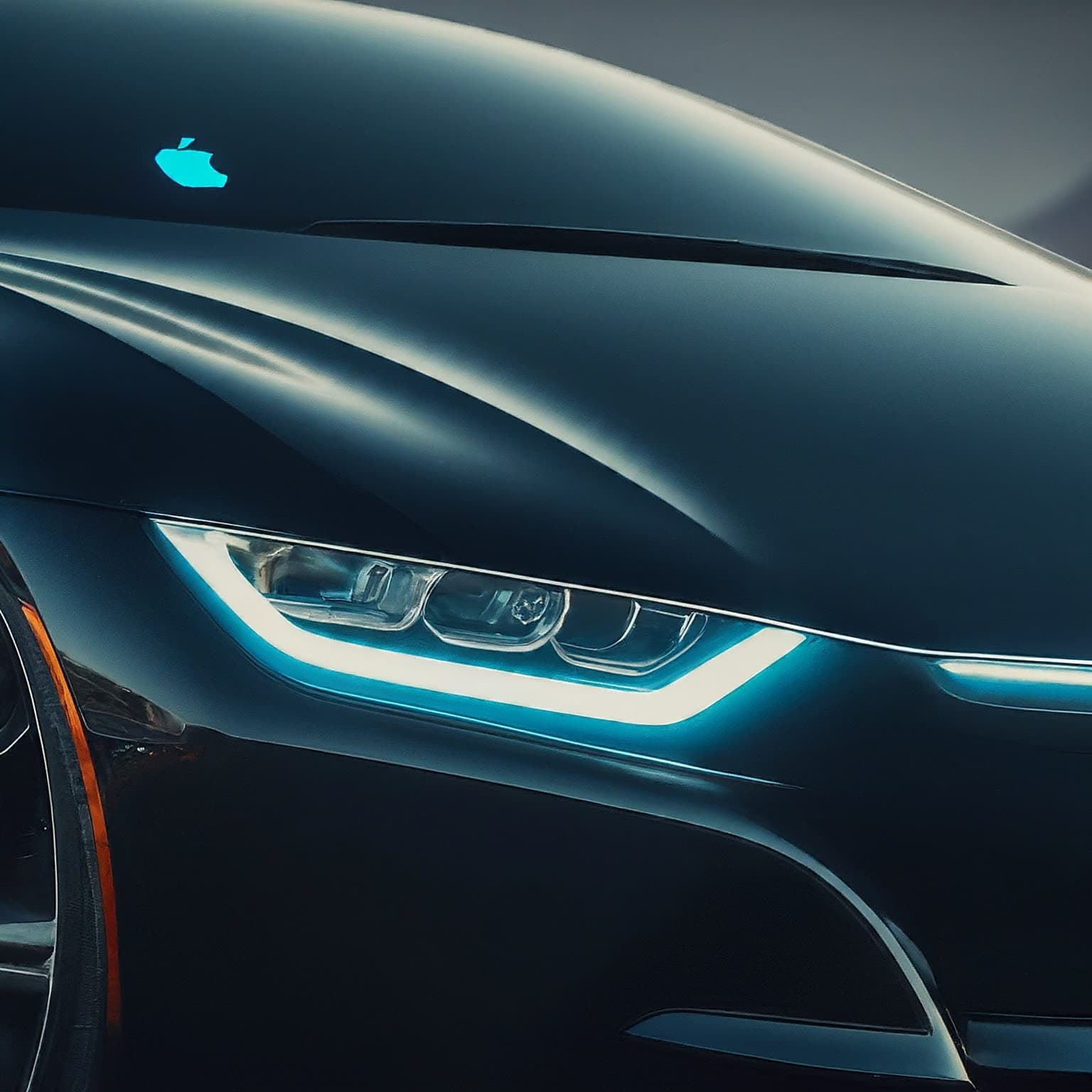After a decade-long endeavor, Apple’s highly anticipated foray into the electric car market, known internally as “Project Titan,” has officially come to a halt. The cancellation, disclosed by Bloomberg’s Mark Gurman and Drake Bennett, marks the end of a tumultuous journey marked by lofty ambitions and formidable challenges.
Why and How Apple Canceled Apple Car Project?
If you want to know the full story of the issue I have covered a dedicated news article on the site, you can pursue it by clicking here
The disclosure sheds light on a 2020 prototype of Apple’s electric vehicle, dubbed the “Bread Loaf” internally. Embodying a minivan-esque aesthetic, the vehicle boasted rounded contours, a panoramic sunroof, sliding doors, and whitewall tires. Its interior envisioned a lavish setting reminiscent of a private jet, with plush seating for four, a sprawling entertainment system, and windows featuring adjustable tint. This design aspiration aimed to redefine the automotive experience with reclining seats and footrests.

Before embarking on an independent design venture, Apple purportedly explored the prospect of acquiring Tesla, then in a nascent phase of growth. Negotiations spearheaded by Apple’s Adrian Perica ultimately faltered under the stewardship of CEO Tim Cook. Concurrently, Apple engaged in discussions with established automakers such as Mercedes-Benz, BMW, Ford, Volkswagen, and McLaren, contemplating partnerships or acquisitions. Progress with Mercedes-Benz showed promise, echoing the potential synergy envisaged with Tesla. Nonetheless, Apple steered away, buoyed by its internal design capabilities.
Despite Apple’s grand vision of a self-driving electric vehicle brimming with groundbreaking features, the project encountered insurmountable obstacles. Technical complexities surrounding autonomous driving technology coupled with the stark economic realities of the automotive industry posed formidable challenges. Leadership indecision compounded the predicament, manifesting in frequent shifts in strategic direction.
The project’s demise was announced to Project Titan personnel by COO Jeff Williams and project lead Kevin Lynch in a concise 12-minute meeting. The outlined restructuring plan entailed workforce reallocations across other Apple divisions, notably in AI and software engineering. Regrettably, certain employees, particularly those in hardware engineering, testing, and automotive safety, faced involuntary layoffs. Concurrently, Apple initiated the divestiture of the project’s dedicated Arizona test facility.
Delving into the genesis of Project Titan, revelations emerged that the late Steve Jobs initially ignited the concept of an Apple-branded vehicle. Moreover, select employees were afforded a glimpse into automotive enthusiast Jay Leno’s prestigious car collection, serving as a potential wellspring of inspiration.
While Apple’s aspiration to revolutionize the electric car segment remains unfulfilled, the saga of Project Titan imparts invaluable lessons on the intricacies and vicissitudes inherent in innovation within the automotive domain, particularly concerning autonomous driving technology and incumbent market players like Tesla. As Bloomberg’s narrative culminates, the tale serves as a cautionary testament to the interplay of ambition, indecision, and the dynamic flux of the technology landscape.






